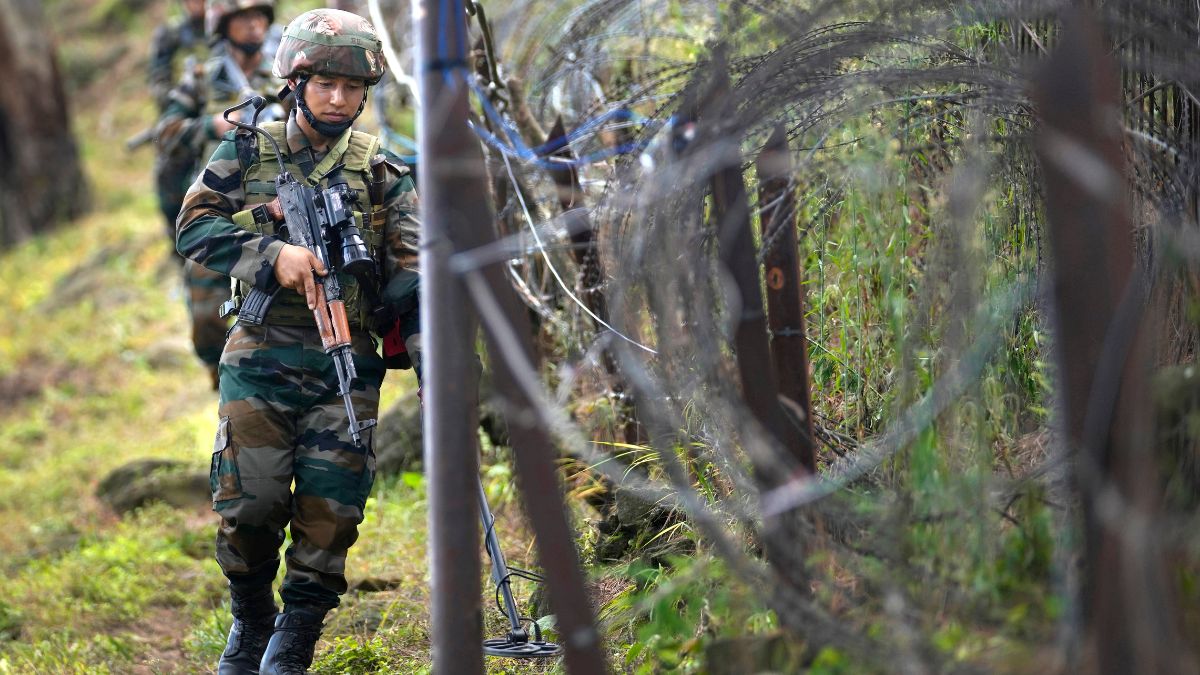Pakistan has dug deep tunnels across the Line of Control (LoC) to infiltrate terrorists into Indian territory and potentially send troops into the other side during an armed conflict between the two nations, The Hindustan Times reported, citing sources in security agencies.
The report says that the BSF and the Army have been directed to investigate the possibility of deep underground tunnels being used for infiltration.
An officer, speaking on condition of anonymity, told The Hindustan Times that after the tragic Pahalgam terror attack, they were directed “to find out if Pakistan has managed to dig very deep tunnels, under the trenches, to facilitate infiltration and even send soldiers in case of any armed conflict”.
According to BSF, Army, and intelligence officials cited in the report, Pakistan has positioned ex-servicemen near the border, both to act as first responders and to facilitate tunnelling operations from their side.
One of the tunnels uncovered by security forces in 2020 was 500 metres long and 30 metres deep. Pakistan has also allowed areas near the border to become overgrown with tall elephant grass to conceal terrorist movements, the officer said.
A third officer added that the tunnel stretched nearly 200 metres into Pakistani territory and was equipped with an oxygen pipe to help infiltrators breathe while waiting to cross over.
Tunnels used for cross border movements during Pulwama, Nagrota camp attack
Umar Farooq, the nephew of Jaish-e-Mohammed (JeM) chief Maulana Masood Azhar and one of the key men behind the 2019 Pulwama attack, entered India through a tunnel in the Samba sector in April 2018. Similarly, the four attackers behind the 2016 Nagrota camp attack also used a tunnel to cross the border.
“While we have deployed anti-tunnel technology and carry out physical inspections along the entire border, we cannot be sure if Pakistan has dug very deep tunnels with openings on the Indian side that remain undetected,” the officer told The Hindustan Times.
Since 2001, India has discovered around 22 tunnels used by Pakistan to infiltrate terrorists, but officials believe there may be more.
Anti-tunneling operation at LoC to stop infiltration
Earlier in January this year, the Border Security Force (BSF) launched a large-scale, months-long operation to check if tunnels were being used by terrorists to enter Indian territory. This was done amid intelligence inputs warning of increased infiltration attempts.
During the exercise, along a 33-km stretch of the International Border (IB) with Pakistan, anti-tunnelling trenches were dug across 25 km to prevent underground infiltration. This step was taken after intelligence reports warned of a high risk of infiltration this year.
Pahalgam terror attack
The Pahalgam attack, one of the deadliest in Jammu and Kashmir since the 2019 Pulwama strike, killed at least 26 people, including foreign nationals, and injured many others. The Resistance Front (TRF), linked to Lashkar-e-Taiba, claimed responsibility.
In response, India took strong action against Pakistan, accusing it of supporting cross-border terrorism. India downgraded diplomatic ties, suspended the Indus Waters Treaty, reduced Pakistan’s diplomatic presence in New Delhi, and expelled military officials. The Attari check post was also closed.
Pakistan retaliated by saying it would withdraw from the 1972 Simla Agreement and close the Wagah border.
Prime Minister Narendra Modi vowed strong action, promising to pursue the terrorists “to the end of the earth.” Pakistan’s Prime Minister Shehbaz Sharif warned that any changes to the Indus Waters Treaty would be seen as “an Act of War.”


)
)
)
)
)
)
)
)
)